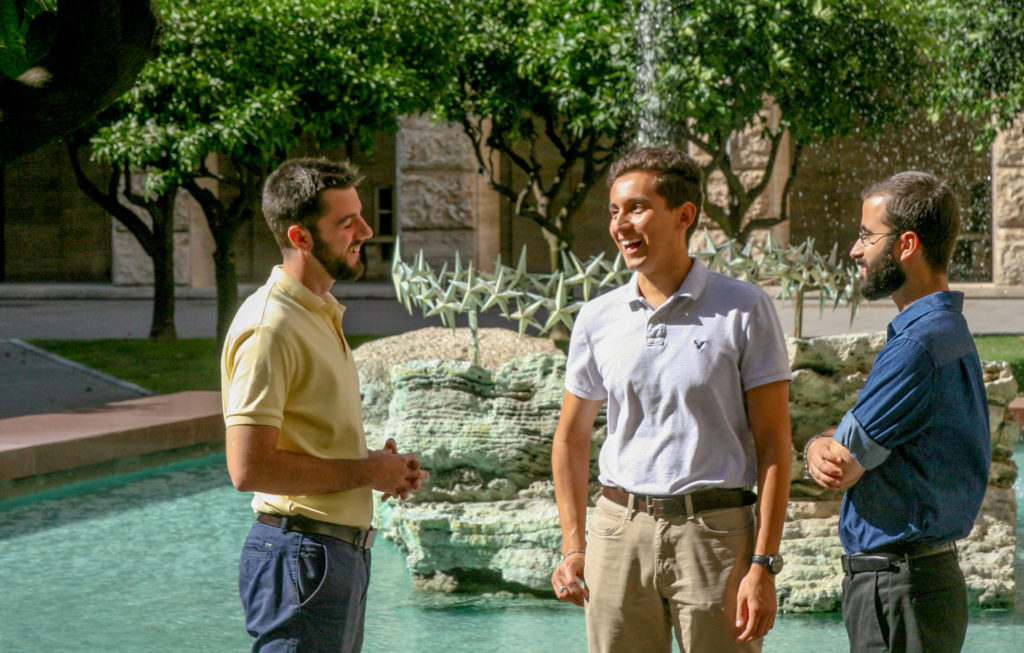It is a joy to start by saying that the new Priestly Formation Plan for Spain is already a reality. It was approved in Plenary by the bishops on April 2, 2019, and by the Congregation for the Clergy last November 28.
The Prefect of the Congregation, Cardinal Stella, recalled in his decree, that is "a Training Plan updated in accordance with the doctrine of the Catholic Church as expressed in the Ratio fundamentalis istitutionis sacerdotalis" (2016), and which is offered to future priests. "for the promotion of a comprehensive training required by the current cultural reality"..
New training plan
The new Priestly Formation Plan. Norms and guidelines for the Church in Spainis the application of the same Ratio Fundamentalis The aim is to be an instrument of communion among the different dioceses. It is, therefore, a matter of unifying criteria in the formation that we offer in our seminaries.
The new Plan is in continuity with the great documents on priestly formation of Vatican Council II: the Presbyterorum Ordinis and the Optatam totiusthe magisterium of St. John Paul II - in particular, the Pastores dabo vobis-the magisterium of Benedict XVI -especially the magisterium of Ministrorum institutiothe motu proprio The Congregation for Catholic Education transferred the responsibility for Seminaries from the Congregation for Catholic Education to the Congregation for the Clergy; and the magisterium of Pope Francis, who has given special impetus to this project so that it will come to fruition.
The new Plan gathers the most important contributions of the priestly formation tradition in our country; therefore, it is also the fruit of its historical development. Since the Council until now, there have been four formation plans for our seminaries, the last one in 1996. In addition to these, different documents on vocation ministry and priestly life have been published, particularly the proceedings of the congresses and symposiums on priestly spirituality that have been held, all of which have been taken into account in the elaboration of our Formation Plan.
In order to define what is essentially the new Priestly Formation PlanPatrón Wong, Archbishop Patrón Wong, Secretary for Seminaries of the Congregation for the Clergy. In speaking of the Ratio fundamentalis to the rectors and formators of the Spanish Seminaries, he told them that that text "it goes through all the moments of the priest's life: the foundations laid in his family experience and in his participation in the parish community, the profound and delicate moment of the vocational decision, the initial formation in the Seminary and the ongoing formation in the exercise of the priestly ministry, all these moments constitute a single formative process.". The uniqueness of the whole process is a central idea of the training proposal.
Challenges
There are many challenges that are presented to priestly formation, this challenges us in a special way to those who are more or less involved in the process, but it is an ecclesial task in which we cannot remain alone. It is true that the Bishop and the formators who live day by day at the head of the educational community of the Seminary are the most responsible for the Seminary, but the families and the parish communities where these vocations are born and grow, and of course, the candidates themselves, who must feel responsible for their own formation process, are also responsible in a special way. But so too is every Christian, who is called to turn every day to the Lord to ask him to send us shepherds after his own heart.
No. 3 of the Ratio fundamentalis assumes that the formation of missionary pastors is a priority when the call to evangelization is urgent: "The purpose of formation is to participate in the unique mission entrusted by Christ to his Church: evangelization in all its forms.". The Church in Spain lives immersed in a process, it is therefore consistent to remember that the formation of the shepherd disciple is, in turn, the formation of the missionary shepherd.
Year after year we ask ourselves why it is necessary to celebrate Seminary Day. The answer is that it continues to be important to make the Christian community aware that the Seminary is a task for everyone, and not just for a few, no matter how qualified they may be. And also because we must strive to create in our homes and parishes a favorable environment for listening to the Word of God, so that there can be a serene response to his call. It is well-born to be grateful for so many priests who on our life's journey have made us turn to God and have shown us the way back to the Father's house.
Director of the Secretariat of the Commission of Seminaries and Universities, EEC







